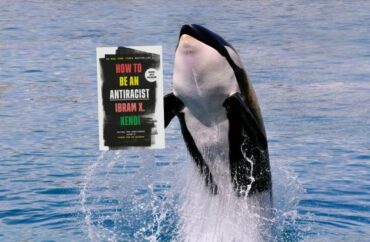
Researchers should embrace DEI, ‘anti-racist’ training
Ocean science researchers must work “towards equity and justice” in their field, according to a group of scholars.
Their academic paper includes a call for scholars to “[a]dvocate for and actively create opportunities for your BIPOC, LGBTQIA+, disabled, and female colleagues, even when this means personally stepping aside/turning down opportunities.”
Nature’s open-access publication, npj ocean sustainability, published the paper.
Proposals focused on a variety of policies, including specifically promoting minority groups. These applied to funding, such as in the call for “More grants awarded to underrepresented researchers,” and to citations, such as in the calls to “Check whether your reference lists are gender-balanced.”
They also suggest “diversity, equity, and inclusion” policies and “anti-racist” training for research staff.
Ocean scientists should also educate themselves “on the work of minority scientists relevant to [their] study and consider proactively citing more work by minority scientists as an act of reparative justice and affirmative action in citational practices.”
Paper co-author Paris Stefanoudis at the University of Oxford provided The College Fix with a sampling of resources to incorporate the suggestions.
“That is really hard to track since there are so many issues covered here,” Stefanoudis said, when asked about examples of the paper’s ideas being implemented. He pointed to the University of Wisconsin-Madison’s Gender Citation Index Balance Tool as an example of “gender-balanced referencing.”
Stefanoudis also mentioned the publication Conservation Letters’ policy as an example of the paper’s proposal to “[m]andate that publications on the Global South by those in the Global North include authors from those geographies.”
The publication requires “manuscripts focused on conservation in Low and Middle Income Countries include authors from the relevant country/countries.”
The researchers also suggested the special recognition of “individuals from underrepresented groups through awards, invited talks, keynote lectures at conferences etc.”
One of the researchers, Asha de Vos of the Oceans Institute of University of Western Australia, spoke regarding the contents of the paper and a related op-ed she wrote in the New York Times at a British Ecological Society conference.
Come here me speak LIVE on this at #BES2023 at the auditorium on the 14th December 11-11:30 am. Titled ‘JUST conservation for a healthier planet’, it’s right after the awards ceremony (where I will proudly accept the award as @BritishEcolSoc diversity and equity champion).
— Dr. Asha de Vos (@ashadevos) December 13, 2023
There she received an award in recognition of her research on blue whales, use of “storytelling as a tool to share the magic of our world’s oceans,” and desire to “empower the next generation of diverse ocean heroes to become custodians of their patch of ocean.” de Vos also stated that the award recognized her work of “ensuring that these spaces are more inclusive, diverse and equitable.”
The article also promotes the use and increased funding of open access journals rather than traditional publications that place most of their research behind a paywall, suggesting a “tiered structure of Open Access fees based on geography” as well as calling for funding agencies to “Mandate dissemination of results particularly to communities in study areas.”
However, open access publishing has drawn concerns regarding the quality of research often featured in this format.
Stefanoudis said in his email to The Fix that the “fact that there [are] some journals that have a predatory behavior is not an argument against OA,” adding that the “main issue… is the high cost of OA which is not always affordable to many in the Global South.”
“Open Access publishing is not in itself bad. If anything, it makes access to information more easily accessible to everyone,” he wrote.
Another suggestion was that of allowing local Indigenous communities to take the lead in research projects that relate to the area they live in: “Always consider the inclusion of Indigenous scholars from those geographies who are better placed to interpret culture, but also say when it is not appropriate to publish something that is sacred to Indigenous Peoples.”
Stefanoudis wrote that “sometimes research projects might use indigenous information that might end up damaging indigenous communities,” linking to a paper that, citing the United Nations, defines “indigenous knowledge” as including “all forms of knowledge – technologies, know-how skills, practices and beliefs – that enable the community to achieve stable livelihoods in their environment.
After publication, Stefanoudis called the paper a “source for those looking to change the status quo,” describing it later as a “one-stop resource that can be useful to the ocean & wider science community.”
MORE: UMass Boston removes DEI requirements from job postings
IMAGES: Musat/Getty Images; IbramKendi.com





Please join the conversation about our stories on Facebook, Twitter, Instagram, Reddit, MeWe, Rumble, Gab, Minds and Gettr.